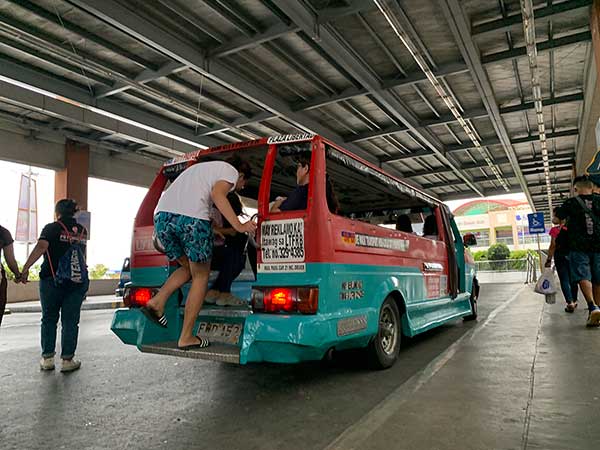
By Joseph Bernard A. Marzan
The Land Transportation Franchising and Regulatory Board (LTFRB) in Western Visayas addressed concerns on Monday regarding competition between traditional jeepney drivers and those operating newer minibus units, known as ‘modern jeepneys.’
Atty. Salvador Altura Jr., the officer-in-charge of LTFRB-6, emphasized the role of transport cooperatives in managing their members under the Local Public Transport Route Plan (LPTRP).
Altura explained that competition issues arose because units that had not been consolidated into cooperatives or corporations were still allowed to operate on city roads.
“Even traditional [jeepney] members of the [cooperatives], which shouldn’t have been plying because they already have their [minibus] units, cannot be stopped by their management due to the presence of unconsolidated [jeepneys],” he said via phone interview.
With the phase-out of unconsolidated units, it should now be easier for cooperatives to control which of their traditional units are operating, especially if they are in excess of their designated routes.
Altura explained that the LTFRB currently has a ‘transfer plan’, which would reassign units to other routes that are undersupplied, and then transition into executing their respective fleet management and signal response systems.
He suggested that the cooperatives may be able to implement this to avoid the competition between minibus and traditional jeeps.
“Units plying routes in excess of what is supposed to be there may be transferred to other routes that are lacking. The effect of the transfer plan is that, with the agreement of all the operators, all of the routes within the LPTRP would be fully filled,” Altura elaborated.
The discussion comes amid proposals, such as one from Councilor Romel Duron, to delay the Public Utility Vehicle Modernization Program (PUVMP).
Altura clarified that the implementation of the LPTRP, enacted through City Regulation Ordinance (CRO) No. 053 series of 2023, is a municipal responsibility, and any suspension would need to be actioned by the city government.
“The implementation of the LPTRP is not the task of the LTFRB. The LPTRP is adopted by way of an ordinance. In other words, it is the ordinance that is being implemented and the LTFRB is just acting in coordination with the [local government] on how it plans to implement this ordinance,” he said.
Regarding the broader scope of the PUVMP, Altura noted that any decision to suspend it would require intervention at the departmental level from the Departments of Transportation (DOTr) and Interior and Local Government (DILG).
“If ever the design is to suspend [the PUVMP], it will require a department-level action. If it is endorsed there, we would be asked for recommendation, not just [LTFRB] Region 6, but also all regional offices,” he said.
To date, Iloilo City has implemented two of the ten components of the PUVMP: the LPTRP and Industry Consolidation.
As of April 30, the national government’s deadline for the PUVMP, 1,692 of 2,266 units, or 75 percent, have been consolidated.
Uldarico Garbanzos Jr., head of the Iloilo City Traffic Management Unit, confirmed that their personnel are prepared to enforce the LPTRP and PUVMP rules and regulations, under guidance from the LTFRB.





















